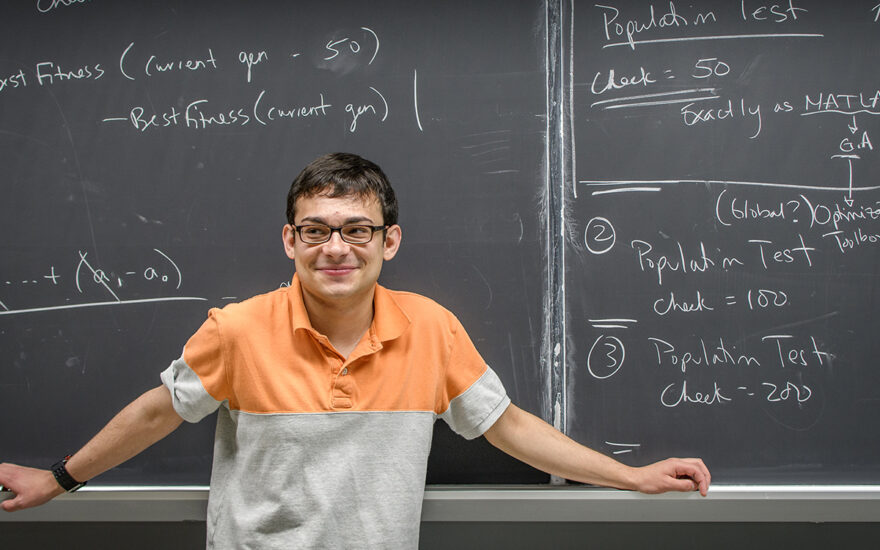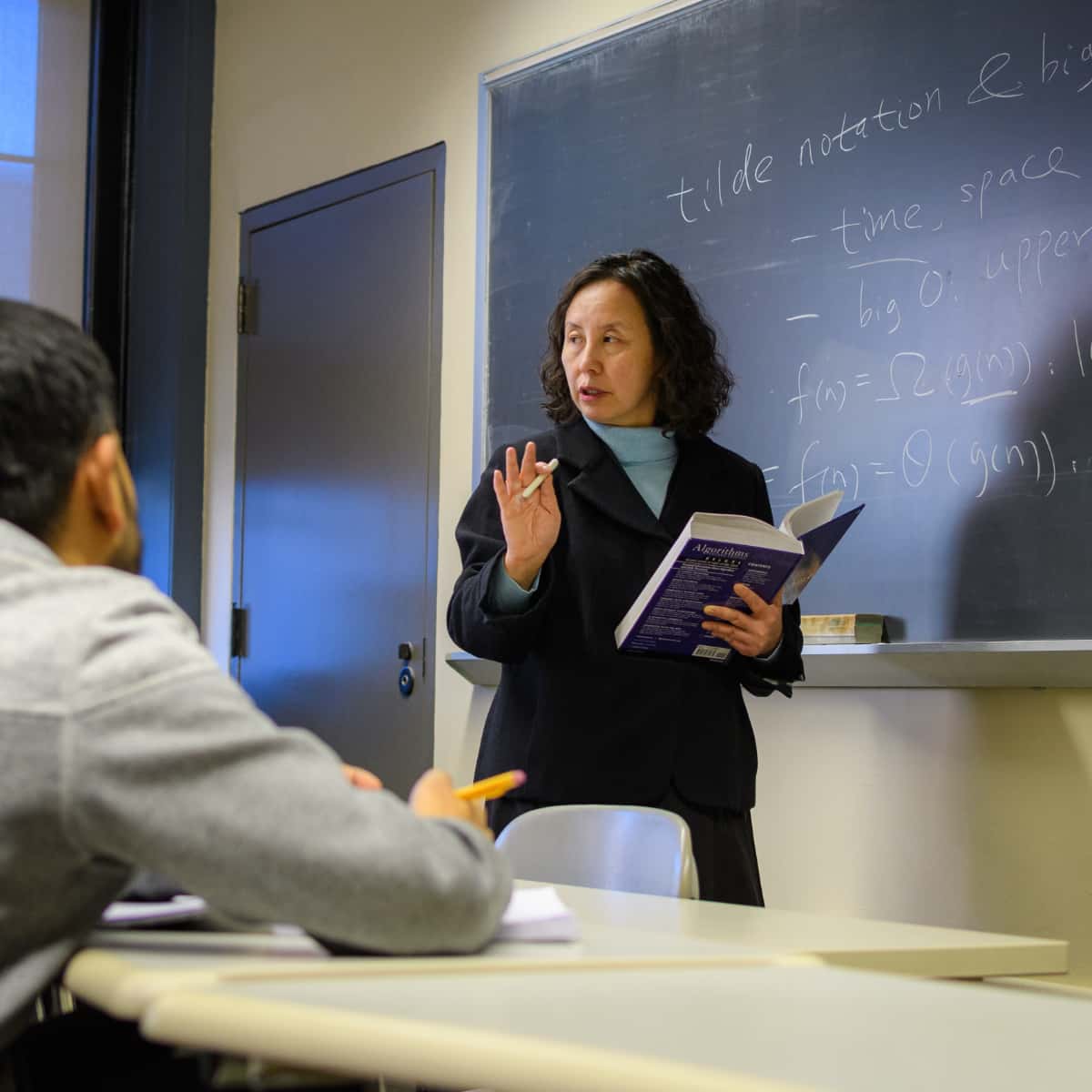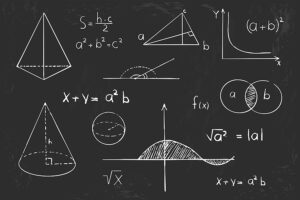Understanding mathematics provides you with a deep understanding of the world around us — and how to improve it. As a math major at Clark, you can contribute to mathematical knowledge for its own sake (“pure” mathematics), or apply your knowledge of math to solve problems in fields such as chemistry, physics, engineering, economics, and computer science.


Why study mathematics at Clark?
- Benefit from a supportive community that is collaborative, not competitive, where you can grow your skills and knowledge with the help of faculty and peer mentors who want you to succeed; you can give back by becoming a peer learning assistant yourself.
- Participate in research from your first day at Clark by joining our Diving into Research Group. All math majors are encouraged to undertake independent research under the supervision of a faculty member.
- Challenge yourself at regional and national competitions (individually or as part of the Clark Math Team), including the prestigious Putnam Mathematics Competition.
- Apply
- Request Info
Are you ready to take the first step?
Featured Courses

Markov Chains: Theory, Application and Algorithms
Stochastic processes use randomness to model dynamics of events in fields like the physical and social sciences, finance and business. Study their properties mathematically and by implementing them in code.

Differential Geometry
Describe spaces like surfaces, curves, and manifolds using this branch of mathematics that draws on advanced techniques in calculus and algebra, and has applications in physics, architecture, and economics.

Linear Models
Research often relies on linear regression to predict the relationship between one or more variables and a response. Use real-world examples to explore and model applications of this statistical technique.
A total of 10 courses, as well as two semesters of Honors Calculus, are needed to complete the mathematics major. Our course flowchart, combined with one-on-one faculty advising, will help you plot a path through the major based on your beginning level of preparation and interests. Areas of focus are pure mathematics; applied mathematics, including mathematical biology and statistics; actuarial science; and teacher preparation.
Career Communities are industry-focused groups designed to support your professional exploration and narrow down your career interests within specific fields. You’ll connect to opportunities, professionals, and information that will support your career development. The following communities may be of interest:
Business, Marketing, and Entrepreneurship
Science, Data, and Technology
If you’re considering a career teaching mathematics at the high school level, check out the Noyce Scholarship program.
Actuarial Associate
PwC (PricewaterCoopers)
Custom Reporting Administrator Analyst
Frenova Renal Research
Quantitative Developer
CIT Group, Inc.
Emerging Technologies Computer Scientist
MITRE Corporation
Data Scientist
HiQ Labs
The Clark Experience
The Clark Experience brings together the exceptional education you’ll receive in the classroom and so much more. Through focus and flexibility, it ensures you’ll leave Clark with the creativity, confidence, and resilience to succeed and lead a life of meaning and consequence.
Frequently Asked Questions
What can I do with a major in mathematics?
At Clark you’ll get more than a great education; you’ll also be prepared for a long, productive career and life of consequence. And once you’ve completed your degree, you can join other Clark alumni who have gone on to work for great organizations and attend some of the best graduate schools in the world.
What skills will I learn?
- How mathematics can be applied to nearly every aspect of modern life
- How to think at multiple levels of detail and abstraction, and apply that to construct and analyze systems
- How to work as part of a team to solve problems
Are there academic achievement award for mathematics majors?
Outstanding Achievement in Mathematics Award
Is there an honors program in mathematics?
During your junior year, you might be accepted into the mathematics honors program. Joining the program means you’ll work closely with a professor to create a thesis on a topic of your choice. Examples of recent honors theses topics are:
- Visual Application of Group Theory
- Axiomatic Origami
- The Root System F4 and its A2 Subsystems
Be a force for change.
Come study at a small research university with a strong liberal arts core.

